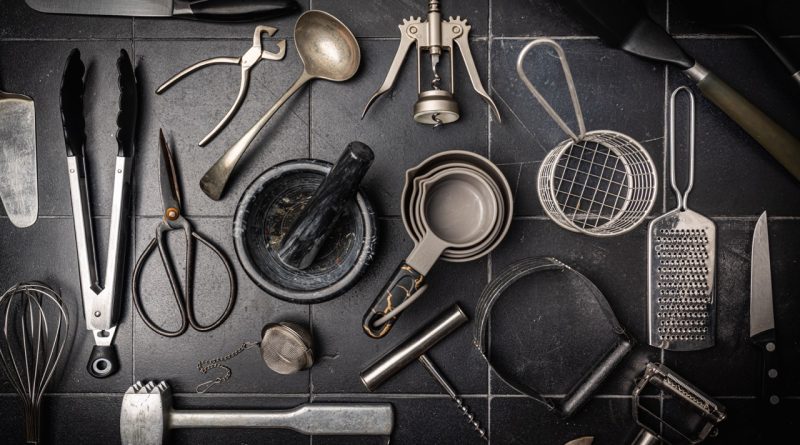How Zwilling Uses Cryodur Technology
In the culinary world, the quality of kitchen knives can significantly impact food preparation and presentation. Zwilling, a renowned name in cutlery, has embraced advanced technologies to enhance their knife offerings. One such innovation is Cryodur technology, which plays a pivotal role in the performance and longevity of their products. This article delves into the science behind Cryodur technology, its benefits, and how Zwilling implements this technique in their knives, along with practical maintenance tips for users.
Understanding Cryodur Technology: The Science Behind It
Cryodur technology involves a specialized heat treatment process that enhances the molecular structure of steel. This technique begins with the forging of high-carbon stainless steel, which is then subjected to a cryogenic treatment. During this phase, the steel is cooled to extremely low temperatures, typically around -196°C (-321°F). This process alters the microstructure of the steel, promoting a finer grain structure that contributes to improved hardness and durability.
Following the cryogenic treatment, the steel undergoes tempering, which helps relieve internal stresses and ensures optimal toughness. This two-step process results in blades that are not only sharper but also less prone to chipping and wear. The precise control over the temperature and duration of this process allows for consistency in quality, making Cryodur-treated knives a reliable choice for both home cooks and professional chefs.
Furthermore, the Cryodur technology enhances the corrosion resistance of the steel. By refining the molecular structure, the treatment minimizes the risk of oxidation, ensuring that the knives maintain their aesthetic appeal and functionality over time. This advanced understanding of material science sets Cryodur apart from traditional knife-making techniques, leading to superior kitchen tools.
The Benefits of Cryodur Technology for Kitchen Knives
One of the most significant advantages of Cryodur technology is the enhanced sharpness of the blades. The fine grain structure achieved through the cryogenic process allows for a sharper edge that can be maintained for longer periods. This means that chefs can enjoy effortless cutting, slicing, and dicing, resulting in more precise food preparation. The longevity of the sharp edge can significantly reduce the frequency of sharpening sessions, saving time and effort in the kitchen.
Another notable benefit is the increased durability of Cryodur knives. The combination of hardness and toughness achieved through the heat treatment process makes these knives less likely to chip or break under stress. This durability is particularly beneficial in professional kitchens, where knives often face rigorous daily use. Chefs can rely on Cryodur knives to withstand the demands of their culinary tasks without compromising performance.
Additionally, the corrosion resistance provided by Cryodur technology ensures that the knives remain visually appealing and functional over time. The reduced likelihood of rusting means that users can maintain their knives with less worry about maintenance. This attribute not only enhances the user experience but also contributes to the longevity of the product, making it a wise investment for any kitchen.
How Zwilling Implements Cryodur in Their Products
Zwilling has fully integrated Cryodur technology into its knife-making process, ensuring that each blade meets high standards of quality and performance. The company uses premium high-carbon stainless steel as the foundation for its knives, which is essential for achieving the desired results during the cryogenic treatment. This commitment to quality materials is a hallmark of Zwilling’s philosophy, allowing them to produce knives that stand the test of time.
The cryogenic treatment process is executed in controlled environments, ensuring that every batch of knives receives the same meticulous attention. Zwilling’s cutting-edge facilities are equipped with advanced technology to monitor and regulate the temperatures involved in the process, guaranteeing consistent outcomes. This level of precision is crucial for maintaining the brand’s reputation for excellence in cutlery.
Moreover, Zwilling continually invests in research and development to refine its Cryodur technology. By collaborating with metallurgists and culinary professionals, the company seeks to enhance the performance characteristics of its knives further. This commitment to innovation not only helps Zwilling stay ahead of its competition but also ensures that users benefit from the latest advancements in knife technology.
Practical Tips for Maintaining Cryodur Knives in Your Kitchen
To ensure the longevity of your Cryodur knives, proper maintenance is essential. Start by using a cutting board made of soft materials, such as wood or plastic, to minimize the risk of dulling the blade. Avoid cutting on hard surfaces like glass or stone, as these can damage the knife edge over time.
Regular cleaning is vital for preserving the appearance and performance of Cryodur knives. After use, wash the blades by hand with warm, soapy water and dry them immediately with a soft cloth. Avoid using the dishwasher, as the high temperatures and harsh detergents can compromise the knife’s integrity and sharpness.
Finally, consider using a honing steel regularly to maintain the edge of your Cryodur knives. Honing helps realign the blade edge without removing material, ensuring that your knives remain sharp between sharpening sessions. By following these simple maintenance tips, you can enjoy the benefits of your Cryodur knives for years to come.
Cryodur technology represents a significant advancement in knife-making, enhancing the performance and durability of Zwilling’s products. Through a combination of scientific innovation and meticulous craftsmanship, Zwilling has set a standard in the cutlery industry. By understanding the benefits of Cryodur technology and implementing proper maintenance practices, users can fully appreciate the quality and longevity of their kitchen knives, making every culinary endeavor a pleasurable experience.
